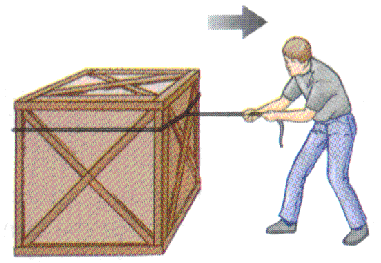"Direct, straight-line, intervening power does, of course, have many uses. With it, you can lift the spaghetti from the plate to your mouth, wipe the sauce off your slacks, carry them to the dry cleaners, and perhaps even make enough money to ransom them back. Indeed, straight-line power ("use the force you need to get the result you want") is responsible for almost everything that happens in the world. And the beauty of it is, it works. From removing the dust with a cloth to removing your enemy with a .45, it achieves its ends in sensible, effective, easily understood ways.
"Unfortunately, it has a whopping limitation. If you take the view that one of the chief objects in life is to remain in loving relationships with other people, straight-line power becomes useless.
 Oh, admittedly, you can snatch your baby boy away from the edge of a cliff and not have a broken relationship on your hands. But just try interfering with his plans for the season when he is twenty, and see what happens, especially if his chosen plans play havoc with your own. Suppose he makes unauthorized use of your car, and you use a little straight-line verbal power to scare him out of doing it again. Well and good. But suppose further that he does it again anyway -- and again and again and again. What do you do next if you are committed to straight-line power? You raise your voice a little more nastily each time till you can't shout any louder. And then you beat him (if you are stronger than he is) until you can't beat any harder. Then you chain him to a radiator till....But you see the point. "
Oh, admittedly, you can snatch your baby boy away from the edge of a cliff and not have a broken relationship on your hands. But just try interfering with his plans for the season when he is twenty, and see what happens, especially if his chosen plans play havoc with your own. Suppose he makes unauthorized use of your car, and you use a little straight-line verbal power to scare him out of doing it again. Well and good. But suppose further that he does it again anyway -- and again and again and again. What do you do next if you are committed to straight-line power? You raise your voice a little more nastily each time till you can't shout any louder. And then you beat him (if you are stronger than he is) until you can't beat any harder. Then you chain him to a radiator till....But you see the point. "When reading this, I thought it was a bit extreme. While I don't have children, I've been in arguments before and I've never thought to break out the handcuffs. And then I stumbled upon this article by cnn.com that speaks of "seclusion rooms" for autistic and special needs students. These small rooms are often converted closets with walls covered in padding. Apparently, seclusion rooms are used by teachers for students who have a particularly difficult time calming down when asked. If a room is not available, the teacher is instructed to physically hold the student pinned to the floor until he/she calms down. While these rooms are sometimes over used by impatient teachers, they are meant to be a help to the student.

This demonstrates one use of straight-line power (theologically called "the law") in a classroom setting. Yet, forcing a child to sit still as punishment for being rowdy only gives the semblance of compliance, or even makes matters worse. The child may call down, but rarely will he/she actually learn. As was the case four years ago, a young child put in a seclusion room killed himself.
Is there another way?
A Capon goes on to say, "At some very early crux in that difficult, personal relationship, the whole thing will be destroyed unless you -- who, on any reasonable view, should be allowed to use straight-line power -- simply refuse to use it; unless, in other words, you decide that instead of dishing out justifiable pain and punishment, you are willing, quite foolishly, to take a beating yourself."
This means letting youself bear the embarrassment of a screaming child, in love listening to every word of insults hurled at you, losing the battle to win the heart.




